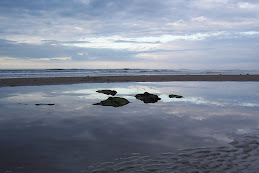Most poets at some time or other question the purpose of their writing. In Dared and Done. The Marriage of Elizabeth Barrett and Robert Browning Julia Markus says that in her poetry Barrett-Browning saw and sang out.
And I, a singer also, from my youthPerhaps it is harder to sing to those who are not the most receptive, but it is also more rewarding when they begin to hum along too. I meet Karl, an engineer who says he isn't interested in poetry, but he is bored with the TV so I can distract him. I find out a bit about him and his life and then I read from Julia Darling's 'Waiting Room'.
Prefer to sing with those who are awake.
EBB 'Casa Guidi Windows'
I'm waiting forKarl nods, "There's the truth."
the drugs to work,
this rain to stop, for results,
the tea to brew
paint to dry,
for it to harden, to wear off
my hair to grow, morning,
the weekend, a miracle,
to be put through:
Canadian poet, Alden Nowlan, writing a hundred years after Barrett-Browning in 'Johnnie's Poem' said: you write poems about what/you feel the deepest and hardest.
With this residency I aim to see and sing out, to find resonance with others and to write about the deepest and the hardest; the deepest and the hardest joy and love, as well as the deepest and hardest sorrow and fear.

